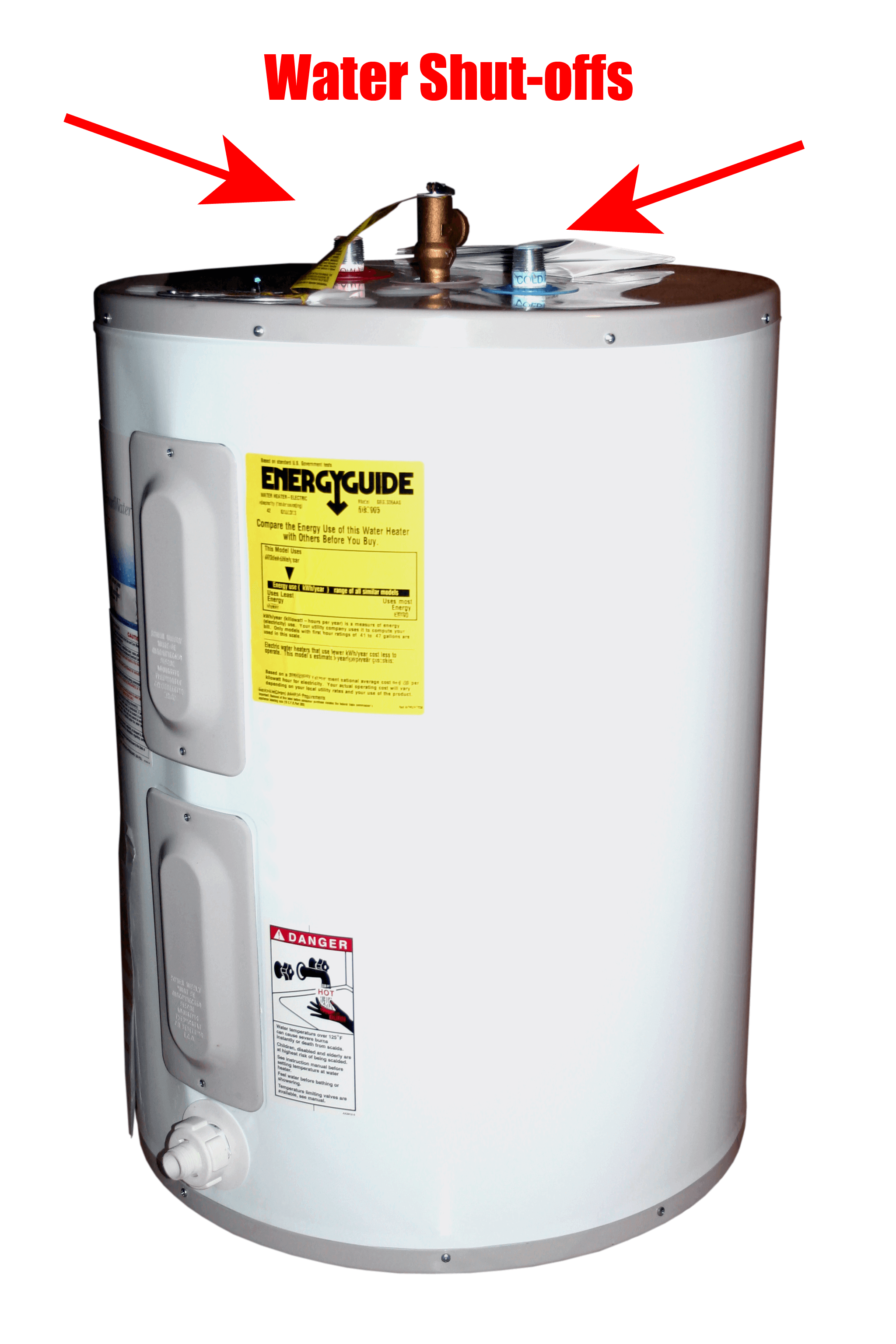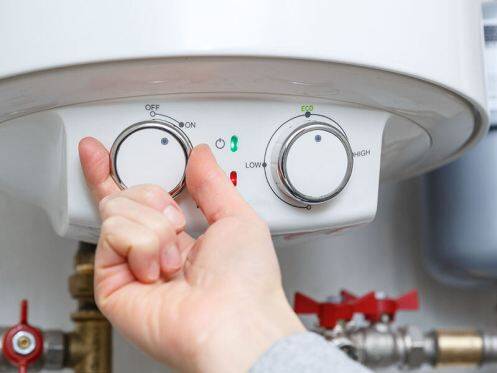Turning off your water heater can save money, especially if you’re away for extended periods. This simple action reduces energy consumption and lowers utility bills.
Many households overlook the impact of their water heater on energy costs. Water heaters account for a significant portion of energy usage, often second only to heating and cooling systems. By turning off the heater during long absences or using a timer, you can effectively reduce your monthly expenses.
It’s essential to understand how your specific model operates to maximize savings. Regular maintenance and optimizing settings also contribute to efficiency. With a few simple adjustments, you can enjoy both comfort and savings while minimizing energy waste. Making informed choices about your water heater can lead to noticeable financial benefits.
Page Contents
- 1 Introduction To Water Heater Economics
- 2 Assessing The Impact Of Turning Off Water Heaters
- 3 Myth Vs. Reality: Water Heater Operation
- 4 Types Of Water Heaters And Efficiency
- 5 Optimal Water Heater Usage Strategies
- 6 Cost-benefit Analysis Of Water Heater Management
- 7 Maintenance Tips For Enhanced Efficiency
- 8 Additional Ways To Save On Water Heating
- 9 Environmental Considerations
- 10 Conclusion: Making Informed Decisions
- 11 Conclusion
Introduction To Water Heater Economics
Water heaters are a big part of your home’s energy use. They can account for about 14-18% of your energy bills. Understanding how they work helps save money.
Energy consumption matters because it affects your monthly expenses. A water heater uses energy to keep water hot. Turning it off can reduce energy costs.
In many homes, water heaters run all day. This means they constantly use energy, even when not needed. Knowing how often you use hot water can help you save.
Here are some tips to save money:
- Turn off the heater when away for a long time.
- Use timers to control heating times.
- Insulate the water heater and pipes.

Credit: www.billhowe.com
Assessing The Impact Of Turning Off Water Heaters
Turning off a water heater can lead to significant savings. The savings depend on how long it stays off. Most heaters use energy even when not in use.
Factors that influence savings include:
- Type of heater: Electric heaters save more than gas ones.
- Usage habits: Frequent use means less savings.
- Insulation quality: Better insulation reduces heat loss.
- Temperature settings: Lower settings save energy.
Understanding these factors helps in making informed choices. Analyzing usage patterns can help maximize savings.
Myth Vs. Reality: Water Heater Operation
Many people believe that turning off the water heater saves money. This is a common misconception. In reality, constant operation helps maintain water temperature.
Turning it off completely can lead to higher energy costs. Reheating the water takes more energy than keeping it warm. Some heaters also have a standby loss. This refers to energy lost when hot water sits unused.
Using a timer can help. Set it to turn off during non-peak hours. This method ensures energy savings without sacrificing comfort.
Understanding the realities of water heater use is crucial. Making informed decisions leads to better savings and efficiency.
Types Of Water Heaters And Efficiency
Tankless water heaters heat water on demand. They do not store hot water. This makes them more energy-efficient. You only pay for what you use.
Traditional tank models store hot water in a tank. They keep water heated all day. This can lead to higher energy bills.
| Type | Efficiency |
|---|---|
| Tankless | Higher efficiency, saves money |
| Tank | Lower efficiency, costs more |
Electric heaters are easy to install. They work well but can be costly to run. Gas heaters use natural gas. They are often cheaper to operate.
Choosing the right type matters. It can affect your monthly bills. Consider your needs before deciding.
Optimal Water Heater Usage Strategies
Understanding daily usage patterns helps in saving money. Using hot water during peak hours can increase costs. Aim to use hot water in the morning and evening. This reduces energy consumption.
For vacation or extended absence, turning off the water heater is wise. It prevents unnecessary energy use while away. Consider setting the heater to vacation mode if available. This keeps the water warm without excessive energy costs.

Credit: waterheatertimer.org
Cost-benefit Analysis Of Water Heater Management
Turning off a water heater can lead to short-term savings. This helps reduce energy costs immediately. However, long-term savings depend on usage patterns. Frequent use may negate initial savings.
Investing in energy-efficient models is wise. These models use less energy and lower bills. They often have a higher upfront cost but pay off over time.
Consider the energy rating of your current heater. A higher rating means better efficiency. Switching to a better model can save significant money.
Maintenance Tips For Enhanced Efficiency
Regular inspections of your water heater can improve its efficiency. Check for leaks and rust. Clean the area around the heater to prevent buildup.
DIY maintenance can save money but requires caution. Always turn off the power before starting. Flush the tank to remove sediment. Check the thermostat for accuracy.
For professional maintenance, hire a qualified technician. They can perform detailed checks and repairs. A professional can spot issues you might miss.
| Maintenance Type | Pros | Cons |
|---|---|---|
| DIY | Cost-effective, Learn skills | Risk of injury, Possible mistakes |
| Professional | Expertise, Saves time | Higher cost, Scheduling required |
Additional Ways To Save On Water Heating
Insulating your water heater helps keep heat in. This means it won’t need to work as hard. Heat traps can also be very useful. They stop heat from escaping through pipes.
Setting the temperature lower saves energy. A temperature of 120°F is often enough. Timers can also help. They turn the heater on only when needed. This saves money on your bill.
Environmental Considerations
Turning off your water heater can greatly help in reducing carbon emissions. Less energy use means a smaller carbon footprint. This is important for our planet’s health.
Switching to sustainable energy sources for water heating is beneficial. Solar panels are a great option. They harness the sun’s power to heat water. Wind energy also offers a clean alternative. Both options reduce reliance on fossil fuels.
| Sustainable Energy Source | Benefits |
|---|---|
| Solar Power | Reduces electric bills and lowers emissions. |
| Wind Energy | Provides a clean and renewable energy source. |
Conclusion: Making Informed Decisions
Turning off the water heater can lead to significant savings. It reduces energy use when hot water isn’t needed. This method can lower utility bills, especially during periods of inactivity.
Balancing cost and comfort is essential. Some people prefer warm water at all times. Others may prioritize saving money over comfort. Evaluating personal needs helps in making the right choice.
| Water Heating Technology | Future Trends |
|---|---|
| Smart Water Heaters | Remote control and energy monitoring |
| Solar Water Heating | Increased efficiency and affordability |
| Tankless Water Heaters | Endless hot water supply |
Future trends will focus on energy efficiency and cost-effectiveness. These innovations make life easier and save money. Staying updated on these technologies can enhance comfort and cut costs.

Credit: worksplumbing.com
Conclusion
Turning off your water heater can lead to noticeable savings on your energy bill. It reduces standby heat loss and minimizes unnecessary energy consumption. While the amount saved may vary, every bit helps. Consider your usage patterns to make the best decision for your household budget.
Save money while being energy efficient!
